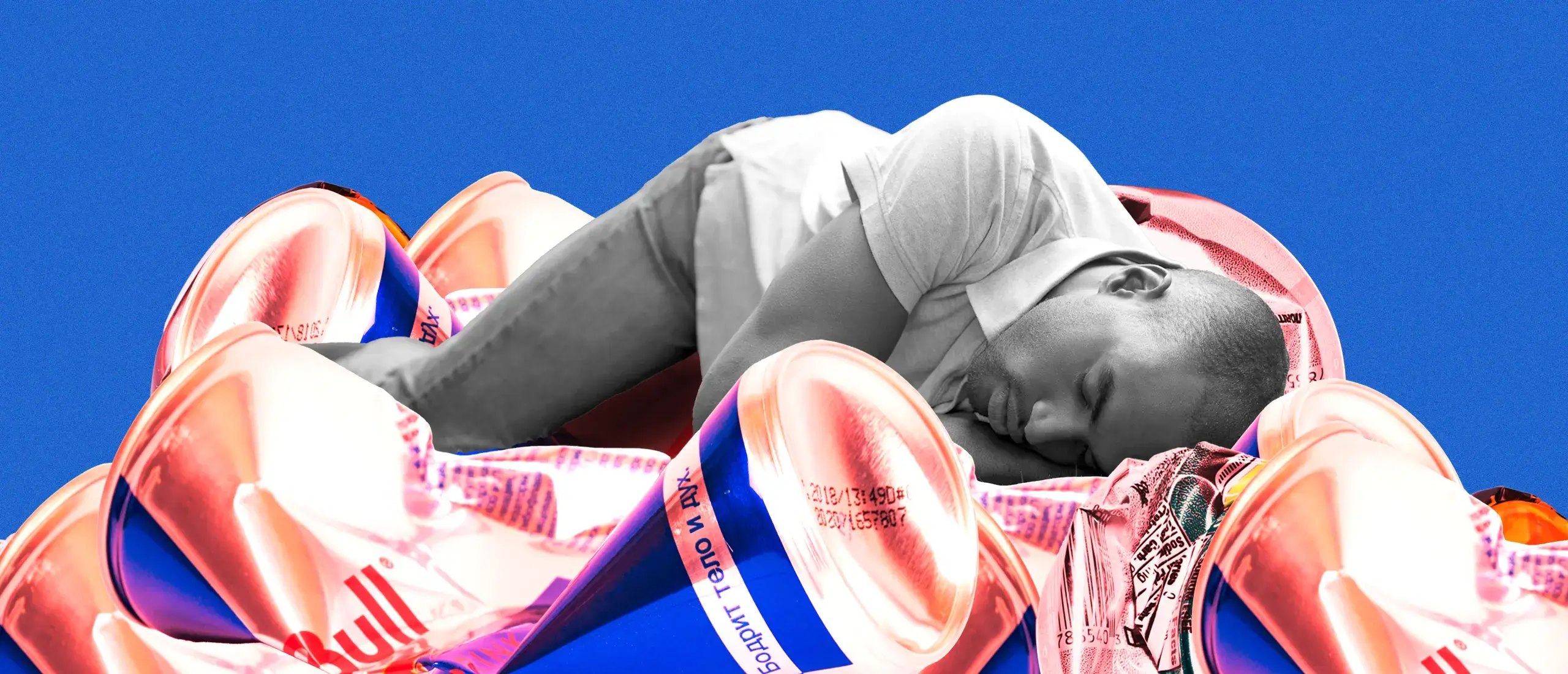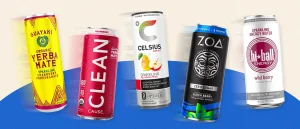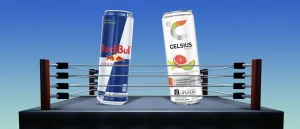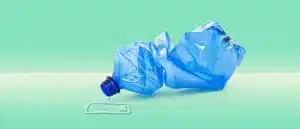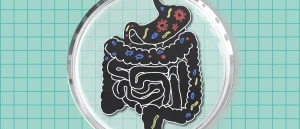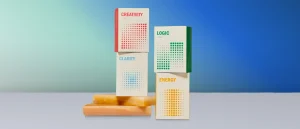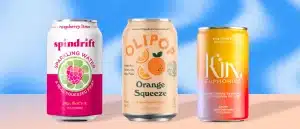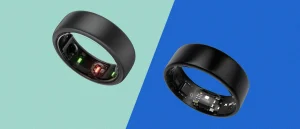Energy Drinks Make You Tired? You’re Not Alone
- By Taneia Surles, MPH
- February 23, 2024
10-Second Takeaway
Energy drinks may cause you to feel tired for a number of reasons: caffeine crash, sugar crash, dehydration, poor sleep, or adrenal fatigue.
You might reach for an energy drink when you need a nice boost to start your day. However, have you ever felt tired within a few hours of finishing a Red Bull or Monster? Well, you’re not alone—despite the assumption that energy drinks will make you feel energized and alert, they can, in some cases, also make you feel fatigued or tired.
Here are a few reasons you may feel tired after consuming an energy drink.
About the Experts:
Kimberly Gomer, MS, RD/LDN, is a dietitian nutritionist, and the Director of Nutrition at Body Beautiful Miami.
Megan Hilbert, MS, RD, is a registered dietitian nutritionist specializing in gut health nutrition at Top Nutrition Coaching.
Why Do Energy Drinks Make Me Tired?
There are several reasons why drinking energy drinks, which are meant to boost energy levels, may make you feel tired. These are the primary culprits that we’ll dive into:
- Caffeine crash
- High sugar content
- Dehydration
- Caffeine causes sleep disturbances
- Adrenal fatigue
Caffeine crash
The primary ingredient in most energy drinks is caffeine (1). On average, an 8-ounce energy drink can have almost 80 grams of caffeine (2). According to the U.S. Food and Drug Administration (FDA), you shouldn’t have more than 400 milligrams of caffeine daily (3).
In case you didn’t know, caffeine is a stimulant that increases brain activity (4). “Caffeine works by blocking the effects of adenosine,” says Kimberly Gomer, MS, RD/LDN, a registered licensed dietitian and nutritionist, and the Director of Nutrition at Body Beautiful Miami. “Adenosine is a brain chemical that is involved in sleep. When caffeine blocks adenosine, it causes neurons in the brain to fire.”
While caffeinated energy drinks can give you a nice energy boost—they can also make you crash. “As the caffeine wears off, it can cause a crash,” Gomer says. “This can leave a person feeling even more tired than before they consumed the energy drink.”
Caffeine crashes can occur if you drink 20 to 200 milligrams of caffeine, with symptoms like tiredness, irritability, and headache arising within one to five hours after consumption (5, 6).
High sugar content
Energy drinks typically contain a lot of sugar to boost your energy levels. These beverages can contain between 21 and 34 grams of added sugar per ounce (7). Just so you know how significant those amounts are, the FDA recommends you don’t consume more than 50 grams of added sugar a day on a 2,000-calorie daily diet (8).
The sugar content primarily comes from sucrose, glucose, or artificial sweeteners like high fructose corn syrup (7). Food and drinks containing high sugar may give you a temporary energy boost, but this usually lasts about 30 minutes (9).
Like caffeine, these “sugar highs” may also make you crash after consuming an energy drink. “If the drink has a high sugar content, it can cause a spike in blood sugar which can be followed by a crash,” Gomer explains. “The blood sugar level will drop—leaving the person feeling fatigued and sluggish.”
Dehydration
Hydration is key for your overall well-being. Your body loses water when you sweat, use the bathroom, and even breathe—so drinking enough fluids during the day is an absolute necessity (10). That said, you would assume that if you’re drinking a Red Bull or Monster, you’d be hydrated, right? Not the case.
The caffeine in your favorite energy drink may cause dehydration because of its mild diuretic effect—meaning that it can make you pee more often than is normal (11).
When you drink energy drinks with diuretics like caffeine, you lose more fluids, which may tire you. “Dehydration can occur that may lead to fatigue, dizziness, and lack of focus—all that would make a person feel more tired,” Gomer explains.
Caffeine-caused sleep issues
While you’re likely consuming energy drinks to stay awake, caffeine and other ingredients in them may make sleeping more difficult at night, which leads to a negative energy feedback loop—energy drink disturbs sleep, disturbed sleep leads to tiredness, tiredness leads to a need for energy drinks.
“One of the most common ways energy drinks can make you feel tired is because the caffeine and other stimulants in them may disrupt normal, healthy sleep,” says Megan Hilbert, MS, RD, a registered dietitian nutritionist specializing in gut health nutrition at Top Nutrition Coaching. “Caffeine has an average half-life of up to 12 hours, which means some may experience the effects of caffeine even during bedtime.”
Consuming caffeinated beverages like energy drinks may reduce melatonin levels, an essential hormone for sleep (12). When your melatonin is impacted, it can reduce the number of hours you sleep and the quality of your sleep (13).
Adrenal fatigue
Have you ever heard of adrenal fatigue? While it’s not considered a recognized medical condition, it is a broad term applied to various symptoms, including body aches, fatigue, nervousness, sleep problems, and digestive issues caused by exposure to stressful situations (14).
Research shows that consuming caffeine may affect the function of your adrenal glands, thus leading to adrenal fatigue (15). When this occurs, you may face problems like sleep fragmentation, increased rapid eye movement (REM) latency, and decreased time spent in REM sleep (16).
Since adrenal fatigue is not an official medical condition, it’s probably best to speak with a medical professional if you’re experiencing any of the symptoms mentioned above (14).
Possible Solutions
You don’t have to give up your energy drinks just yet. However, there are some adjustments you can make to ensure they won’t make you feel tired.
Here are some tips for leveraging your energy drink consumption to prevent tiredness during the day:
Drink energy beverages in moderation. Try to wean off your energy drink consumption as much as possible. “[Aim for] no more than 1-2 drinks per day, especially if you have high blood pressure or heart problems,” Hilbert says. “This amount keeps most individuals under a 200-milligram limit, which is safe for most people to consume.”
Stay hydrated. Keep water handy when guzzling down energy drinks. “Drink water before, during, and after drinking an energy drink to prevent dehydration and decrease fatigue,” Gomer says.
Eat a balanced meal. “Eat a balanced meal that includes protein, healthy fats, and complex carbohydrates (as tolerated) to help regulate blood sugar levels and prevent sudden crashes in energy,” Hilbert explains.
Opt for alternatives. Hilbert recommends trading your beloved energy drinks for tea. “[Tea] provides a great source of polyphenols, which have a wide range of health benefits,” she says. “Most tea also contains less caffeine than energy drinks, which can help mitigate any negative impacts from consuming too much.”
The Bottom Line
Energy drinks can tire you due to caffeine crashes, lots of sugar, dehydration, sleep disturbances, and adrenal fatigue. If you’ve noticed that caffeinated energy drinks are making you sleepy, use the tips mentioned above to reduce or prevent tiredness and other symptoms.
References
-
Alsunni, A.A. (2025). Energy drink consumption: Beneficial and adverse health effects. https://www.ncbi.nlm.nih.gov/pmc/articles/PMC4682602/
-
Mayo Clinic (2022). Caffeine content for coffee, tea, soda, and more. https://www.mayoclinic.org/healthy-lifestyle/nutrition-and-healthy-eating/in-depth/caffeine/art-20049372
-
U.S. Food and Drug Administration (FDA) (2023). Spilling the beans: How much caffeine is too much. https://www.fda.gov/consumers/consumer-updates/spilling-beans-how-much-caffeine-too-much#
-
Alcohol and Drug Federation (ADF) (2024). What is caffeine. https://adf.org.au/drug-facts/caffeine/
-
Evans, J., Richards, J.R. et al (2023). Caffeine. https://www.ncbi.nlm.nih.gov/books/NBK519490/
-
Sajadi-Ernazavarova, K.R., Anderson, J. et al (2023). Caffeine withdrawal. https://www.ncbi.nlm.nih.gov/books/NBK430790/
-
Alsunni, A.A. (2015). Energy drink consumption: Beneficial and adverse health effects. https://www.ncbi.nlm.nih.gov/pmc/articles/PMC4682602/
-
U.S. Food and Drug Administration (FDA) (2023). Added sugars on the nutrition facts label. https://www.fda.gov/food/nutrition-facts-label/added-sugars-nutrition-facts-label
-
University of Rochester Medical Center (n.d.). Overcoming your midafternoon energy slump. https://www.urmc.rochester.edu/encyclopedia/content.aspx?contenttypeid=1&contentid=503
-
National Institutes of Health (NIH) (2023). Hydrating for health: Why drinking water is so important. https://newsinhealth.nih.gov/2023/05/hydrating-health
-
Zhang, Y., Coca, A. et al (2015). Caffeine and diuresis during rest and exercise: A meta-analysis. https://www.ncbi.nlm.nih.gov/pmc/articles/PMC4725310/
-
O’Callaghan, F., Muurlink, O. et al (2018). Effects of caffeine on sleep quality and daytime functioning. https://www.ncbi.nlm.nih.gov/pmc/articles/PMC6292246/
-
Park, J., Han, J.W. et al (2018). Lifetime coffee consumption, pineal gland volume, and sleep quality in late life. https://academic.oup.com/sleep/article/41/10/zsy127/5053876
-
Kearns, A. (2022). Adrenal fatigue: What causes it. https://www.mayoclinic.org/diseases-conditions/addisons-disease/expert-answers/adrenal-fatigue/faq-20057906
-
Ryu, K. and Roh, J. (2019). The effects of high peripubertal caffeine exposure on the adrenal gland in immature male and female rats. https://www.ncbi.nlm.nih.gov/pmc/articles/PMC6566528/
-
Nicolaides, N.C., Vgontzas, A.N. et al (2020). HPA axis and sleep. https://www.ncbi.nlm.nih.gov/books/NBK279071/#



